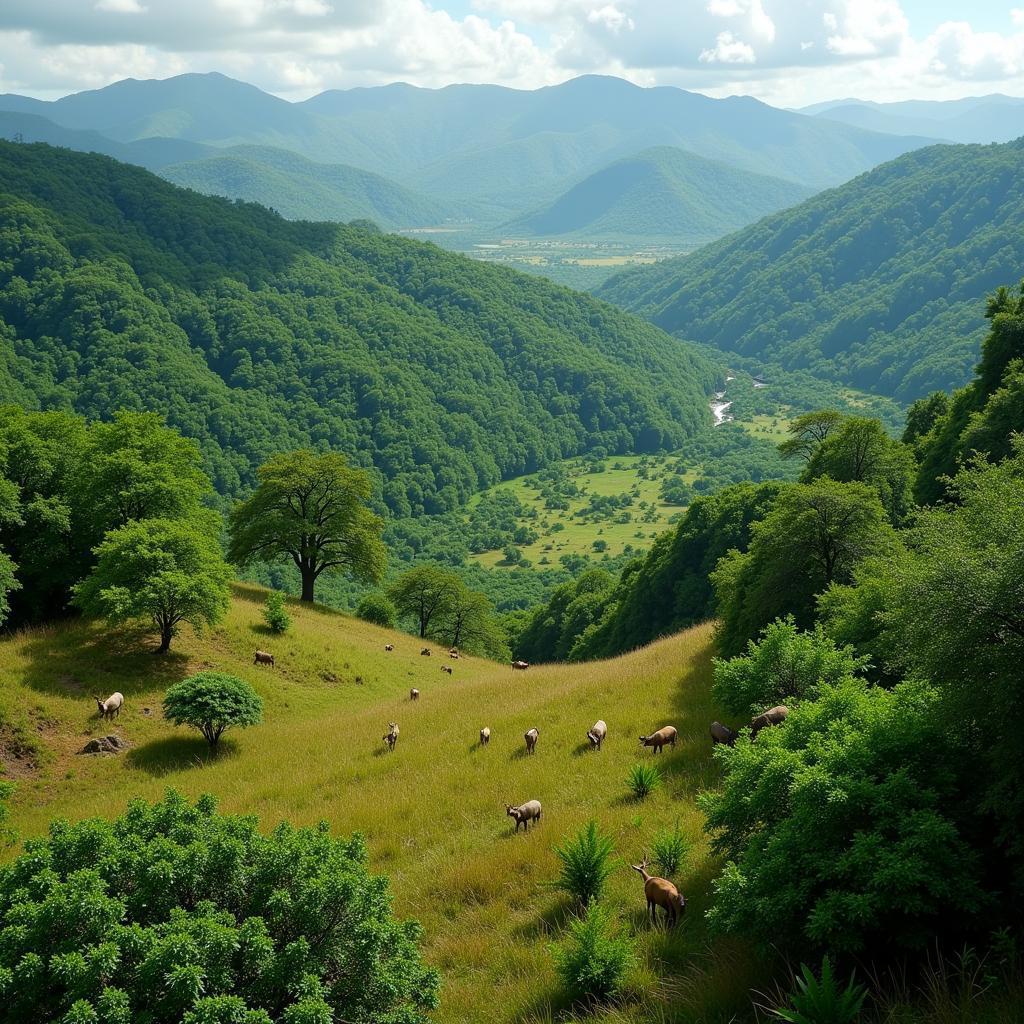Understanding the Concept of African Erotika: A Guide for Global Readers
African Erotika is a rich and diverse tapestry woven with various cultural expressions, historical narratives, and artistic traditions. It’s a fascinating and often misunderstood area of study, but it’s crucial to approach it with respect, sensitivity, and a willingness to understand the nuances of different cultures.
This article aims to provide an informative and engaging exploration of African erotika, addressing common misconceptions and highlighting its significance in the wider context of African art, music, literature, and social life.
Unpacking the Concept: What is African Erotika?
The term “erotika” itself carries a lot of weight and can evoke different associations based on individual experiences and cultural backgrounds. In the context of Africa, it’s essential to understand that “erotika” doesn’t always translate directly to “pornography” or sexually explicit content. It encompasses a much broader range of expressions that celebrate love, beauty, sensuality, and the human body in its entirety.
Dr. Amara Njeri, a prominent scholar of African Art and Cultural Studies, explains:
“African erotika isn’t just about explicit sexuality. It’s about capturing the essence of life, fertility, and the interconnectedness between the physical and spiritual realms. It’s a celebration of being human, both in its joys and its complexities.”
Exploring the Artistic Expressions of African Erotika
African erotika has found expression in a variety of artistic forms, including:
Sculpture:
- Figurative Sculptures: Many African cultures have a long tradition of creating figurative sculptures that depict the human body with a focus on its beauty and sensuality.
- Venus Figurines: These small, portable sculptures, often found in many parts of Africa, represent female fertility and are seen as symbols of beauty and power.
Music:
- Love Songs: Traditional African music is rich with love songs that express different facets of romantic love, from passionate declarations to tender confessions.
- Rhythm and Dance: Rhythm and dance often play a significant role in African erotika, creating a space for physical intimacy and emotional expression.
Literature:
- Folklore and Oral Traditions: Many African cultures have rich oral traditions that include stories and poems exploring themes of love, desire, and sexuality.
- Modern Literature: Contemporary African writers continue to explore themes of erotika in their novels, poetry, and short stories, often with a focus on challenging traditional norms and exploring contemporary issues related to sexuality and gender.
Understanding the Context of African Erotika
It’s crucial to understand that African erotika exists within a specific cultural context. It’s not simply a reflection of Western ideals of sexuality but rather a unique and complex expression rooted in African beliefs, traditions, and values.
For example, in many African cultures, the concept of “erotika” is closely intertwined with the idea of fertility and the celebration of life. This is reflected in the prevalence of fertility figures in art, music, and rituals.
Navigating Sensitive Topics with Respect
When exploring African erotika, it’s essential to approach the subject matter with sensitivity and respect. Avoid making generalizations about entire continents or cultures, and be mindful of the potentially harmful effects of stereotyping and romanticizing.
Conclusion
African erotika offers a unique and valuable lens through which to understand the complexities of African cultures and the multifaceted nature of human expression. By embracing respectful and informed engagement with this topic, we can gain a deeper appreciation for the rich and diverse tapestry of African art, music, literature, and social life.
FAQ
Q: Is African erotika always explicitly sexual?
A: No, it’s not always explicitly sexual. It encompasses a broader range of expressions celebrating love, beauty, sensuality, and the human body.
Q: What are some of the artistic forms where African erotika is expressed?
A: It’s expressed through sculptures, music, literature, dance, and even in everyday rituals and social customs.
Q: How can I approach the study of African erotika responsibly?
A: Approach it with respect, avoid generalizations, and be mindful of the potential for misinterpretation or harmful stereotypes.
Q: Is African erotika relevant to understanding contemporary African societies?
A: Yes, it offers valuable insights into African history, culture, and social dynamics.
Q: Where can I learn more about African erotika?
A: You can explore books, academic articles, documentaries, and online resources dedicated to African art, culture, and history.
Q: Is African erotika simply a reflection of Western ideals of sexuality?
A: No, it’s a unique and complex expression rooted in African beliefs, traditions, and values.
Q: Why is it important to understand the cultural context of African erotika?
A: Understanding the context helps avoid misinterpretations and fosters a deeper appreciation for the diverse expressions of African cultures.
Q: Are there specific websites or organizations that promote responsible engagement with African erotika?
A: Yes, there are numerous academic and cultural organizations dedicated to promoting the study of African art, music, and literature, including those focusing on African erotika. You can find these online through reputable research databases and cultural institutions.
Q: Can you provide some examples of contemporary African artists who address themes of erotika in their work?
A: Contemporary African artists exploring themes of erotika are numerous.
Q: Is it possible to explore African erotika without romanticizing or objectifying it?
A: Yes, with careful research, respectful engagement, and critical thinking, one can explore this topic responsibly.
Q: How can I ensure I’m not contributing to stereotypes or misinterpretations when learning about African erotika?
A: Be critical of the information you encounter, seek diverse perspectives, and challenge assumptions.
Q: What are some of the ethical considerations when exploring African erotika?
A: Ensure the information you share is accurate and respectful, avoiding perpetuating harmful stereotypes or generalizations.
Q: Where can I find resources for learning more about the historical context of African erotika?
A: Reputable universities, museums, and cultural institutions often have online resources and educational materials related to African history and art.
Q: Can you provide examples of specific African cultures or societies where erotika plays a significant role?
A: Many African cultures have traditions and expressions related to erotika, including those found in West Africa, East Africa, and Southern Africa.
Q: Are there any ongoing debates or controversies surrounding the study of African erotika?
A: There are ongoing debates about the appropriate ways to study and represent African erotika, as well as discussions about the potential for misinterpretation or exploitation.
Q: What are some of the challenges in interpreting African erotika from a Western perspective?
A: It’s important to be aware of cultural biases and to avoid imposing Western ideas and perspectives onto African expressions of sexuality and sensuality.
Q: Can you provide some examples of African art that has been misinterpreted or wrongly categorized as simply “pornographic”?
A: Examples exist, but it’s important to approach these cases with sensitivity and avoid perpetuating misinterpretations.
Q: How can I contribute to a more nuanced and respectful understanding of African erotika?
A: By engaging with reliable sources, challenging stereotypes, and promoting open and respectful dialogue.
Q: What are some of the ways African erotika is being used in contemporary African society?
A: It continues to inspire artistic expressions, fuel social discussions, and shape cultural identities.
Q: Are there any legal or ethical considerations surrounding the use of African erotika in commercial settings?
A: It’s important to be aware of cultural sensitivities, potential for misappropriation, and ethical considerations when using African erotika in commercial contexts.
Q: Is there a difference between African erotika and erotika in other parts of the world?
A: Yes, African erotika is a distinct and unique expression, shaped by its own cultural context.
Q: Is there any specific advice for people interested in exploring African erotika in a safe and responsible way?
A: Approach the topic with respect, engage with diverse perspectives, and prioritize understanding over exploitation.
Q: How can I ensure that my exploration of African erotika is ethical and responsible?
A: Remember to respect the cultures and traditions you’re learning about, avoid objectifying or misrepresenting individuals or communities, and always prioritize sensitivity and understanding.

